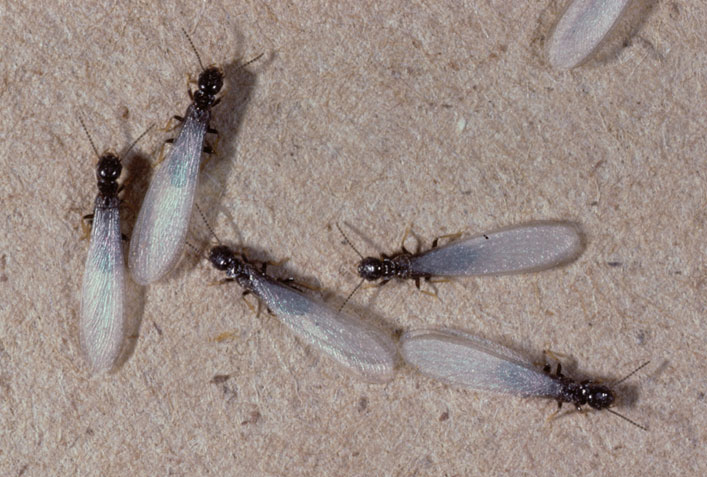Environmental Influence of Insect Control: Harmonizing Performance With Sustainability
The environmental impact of parasite control is a critical issue that needs a fragile equilibrium between achieving efficiency in taking care of pests and ensuring sustainability of our communities. As we strive to safeguard our crops, homes, and health from the risks positioned by pests, the methods we use can accidentally damage the environment. From using dangerous chemicals that leak right into our dirt and water to the unintended consequences on non-target varieties, the effects of traditional insect control methods are far-ranging. However, there are emerging approaches that supply wish for an extra lasting approach to pest management. These options not only aim to address the prompt parasite problems but additionally think about the long-lasting health of our earth.
Harmful Chemicals in Parasite Control
The use of hazardous chemicals in insect control presents substantial ecological and health and wellness threats that require mindful consideration and mitigation methods. Herbicides, chemicals, and pesticides are typically made use of to remove pests, however their prevalent application can lead to unintentional repercussions. These chemicals can contaminate soil, water sources, and the air, influencing not just the targeted parasites yet likewise helpful insects, wildlife, and human beings.

To attend to these dangers, integrated insect administration (IPM) methods are being promoted as a much more sustainable option. IPM entails a mix of methods such as organic control, habitat control, and the targeted use of chemicals as a last hotel (ant control raleigh nc). By taking on an all natural technique to pest control, we can lessen the ecological and health impacts related to dangerous chemicals while efficiently managing pest populaces
Effect On Non-Target Types
Taking into consideration the unintentional consequences of insect control methods, the effect on non-target species is a vital facet that requires complete assessment. While pest control steps aim to target particular bugs, various other microorganisms in the environment may be unintentionally impacted. Non-target types, consisting of beneficial insects, birds, creatures, and even plants, can suffer direct or indirect damage from pesticide applications or organic control methods.
Insecticides created to fight a particular insect bug might hurt pollinators like or all-natural predators such as ladybugs. Biological control representatives, if not species-specific, can present dangers to unplanned targets, disrupting the ecological balance.
To mitigate the effect on non-target types, incorporated bug monitoring (IPM) approaches that emphasize a holistic technique to pest control are advised. These techniques focus on making use of environmentally friendly practices, reducing injury to advantageous microorganisms while efficiently handling pest go to my site populations. Performing detailed threat evaluations and keeping an eye on the end results of bug control efforts are important steps in securing non-target species and advertising overall community wellness.
Dirt and Water Contamination
Unplanned ecological repercussions of bug control methods extend past affecting non-target varieties, with substantial ramifications for soil and water contamination. Pesticides, herbicides, and chemical plant foods used in pest control can seep right into the soil and contaminate groundwater, positioning a hazard to both earthbound and water environments. Dirt contamination can disrupt the equilibrium of microorganisms important for vitamins and mineral cycling and plant growth, leading to decreased soil fertility and productivity. These chemicals can persist in the environment for prolonged durations, collecting in the soil and possibly entering the food chain.
Water contamination is one more essential concern linked with insect control methods. To minimize soil and water contamination from bug control activities, incorporated bug administration methods that focus on sustainability and lessen chemical inputs are essential.
Air Contamination From Pesticide Usage
Exposure to airborne chemicals during farming applications positions a significant problem for air pollution control measures. In addition, pesticide drift, where pesticides are carried by the wind to unplanned areas, can lead to the contamination of nearby ecosystems and water bodies.

Approaches for Sustainable Pest Control
In the world of farming methods, carrying out lasting pest control approaches is critical for preserving eco-friendly equilibrium and safeguarding crop yields. Lasting parasite control emphasizes using eco friendly methods to take care of bug populations properly while lessening damage to non-target organisms and ecosystems. Integrated Parasite Management (IPM) is a commonly taken on technique that combines organic, social, physical, and chemical control techniques to achieve lasting bug administration solutions.
One secret strategy in sustainable insect control is promoting biodiversity within agroecosystems. By enhancing natural opponents of insects, such as parasitoids and predators, farmers can minimize the demand for artificial chemicals. Plant turning and diversification are additionally efficient strategies to disrupt pest life process and develop less favorable problems for insects to grow. In addition, making use of pest-resistant plant ranges and using techniques like catch chopping can help minimize parasite stress without relying heavily on chemical treatments. Eventually, by integrating these sustainable bug control strategies, farmers can attain an equilibrium in between pest monitoring effectiveness and ecological stewardship.
Verdict
In final thought, the ecological impact of parasite control methods have to be very carefully considered to stabilize effectiveness with sustainability. Harmful chemicals utilized in pest control can cause soil and water contamination, air contamination, and injury non-target types - ant control services. It is critical to carry out sustainable bug control methods to lessen these negative results on the environment and advertise a much healthier ecological community for future generations
By taking on an alternative technique to pest control, we can lessen the environmental and wellness effects associated with unsafe chemicals while effectively managing pest populaces.

To alleviate the air pollution caused by chemical usage, it is necessary to embrace integrated parasite administration strategies that focus on the usage of non-chemical parasite control techniques, such as plant rotation, all-natural predators, and resistant plant varieties. Lasting insect control stresses the use of eco friendly techniques to handle pest populaces efficiently while reducing injury to non-target organisms and communities. Integrated Bug Monitoring (IPM) is an extensively taken on method that integrates biological, cultural, physical, and chemical control approaches to accomplish long-term pest monitoring services.